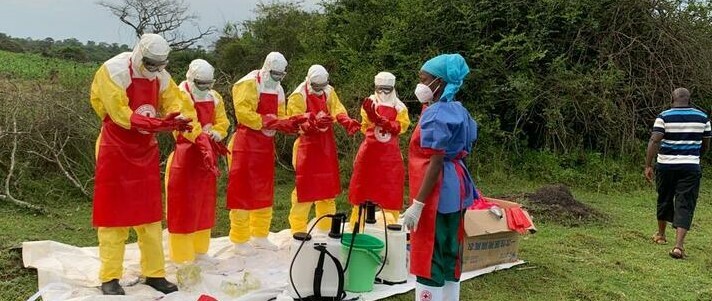Uganda will shorten the school term by two weeks to reduce daily contact among students and help curb the spread of Ebola, the education minister said on Tuesday.
The decision comes after 23 Ebola cases were confirmed among pupils, including eight children who died.
Education Minister Janet Kataha Museveni said that the cabinet had taken the decision to close preschools, primary schools and secondary schools on November 25 because densely packed classrooms were making students highly vulnerable to infection.
“Closing schools earlier will reduce areas of concentration where children are in daily close contact with fellow children, teachers and other staff who could potentially spread the virus,” the minister, who is also the wife of longtime President Yoweri Museveni, said in a statement.
Students in Uganda are currently in their third and final term of the calendar year.
On Saturday, the government extended a three-week lockdown on the districts of Mubende and Kassanda, which have been the centre of the Ebola outbreak.
The measures include a dusk-to-dawn curfew, a ban on personal travel, and the closure of markets, bars and churches.
Since the outbreak was declared in Mubende on September 20, the disease has spread across the country, including to the capital, Kampala, but the president has said nationwide restrictions are not needed.
According to government figures from Sunday, 135 people have been infected with Ebola and 53 have died.
The World Health Organization (WHO) last week said Uganda had registered more than 150 confirmed and probable cases, including 64 fatalities. Uganda’s last recorded death from a previous Ebola outbreak was in 2019.
The virus circulating in Uganda is the Sudan strain of Ebola, for which there is no proven vaccine, unlike the more common Zaire strain, which spread during recent outbreaks in neighbouring Democratic Republic of the Congo.
Ebola is spread through bodily fluids, with common symptoms being fever, vomiting, bleeding and diarrhoea.




